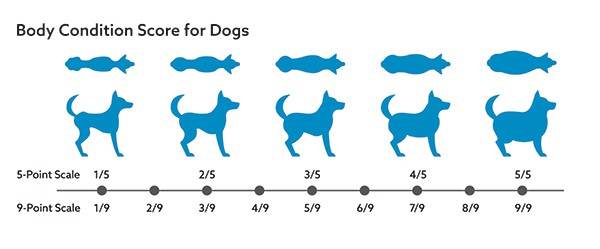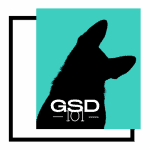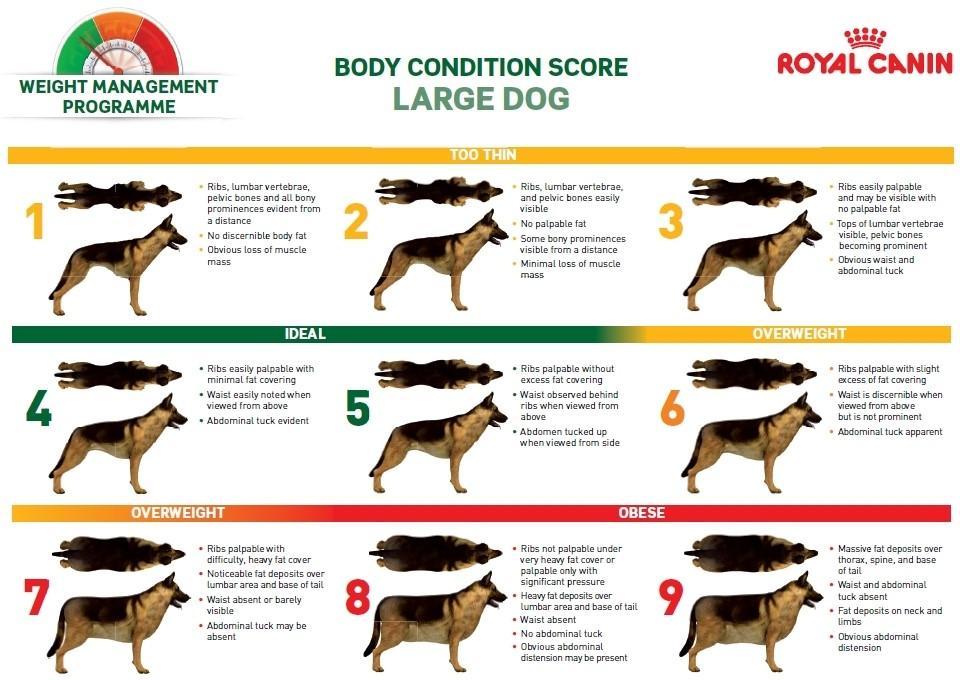Disclosure: This post contains affiliate links. We may earn a small commission if you decided to make a purchase, at no additional cost to you.
A German shepherd puppy is one of the most adorable things you will ever see. That tiny bundle of fluff, with its big eyes and floppy ears, is irresistible. And this four-legged creature is growing so rapidly. But as the puppy matures, chances are your dog may fluctuate and you begin to have questions about how much your dog should weigh at a certain age and when it stops growing.
You may also like:
How to Make German Shepherds Gain Weight?
How big does a German Shepherd get?
German Shepherds are large dogs, typically one of the larger breeds.
Males and females have noticeable differences when it comes to their body build. When they become adult dogs, males are larger, have broader heads, and look distinctly masculine. Females are smaller and finer-boned.
The average size for an adult male GSD is around 24 to 26 inches tall at the shoulder and weighs between 85-100 pounds. A fully grown female GSD is about 20 to 22 inches tall and weighs from 60 to 75 pounds.
This size can also vary depending on the type of German shepherd (working line vs show line). For example, if you get a working line German shepherd, you can expect it to be larger than its show line counterpart.
When do German Shepherds stop growing?
A male German Shepherd will be fully grown at about 18 months old. Female German Shepherds are fully grown at around two years old.
At 18 months, your German Shepherd should have reached his full height, but it can take longer to reach his final weight.
German Shepherd weight chart
Every dog is different. The data below are for reference only, you should always check with your vet to determine the healthy weight for your GSD.
Male German Shepherd Weight Chart (1 month to 3 years)
| Age | Weight Range |
| 1 month | 5.5 – 9 lbs / 2.5 – 4 kg |
| 2 months | 16 – 20 lbs / 6 – 9 kg |
| 3 months | 22 – 30 lbs / 10 – 14 kg |
| 4 months | 35 – 40 lbs / 16 – 18 kg |
| 5 months | 40 – 49 lbs / 18 – 22 kg |
| 6 months | 49 – 57 lbs / 22 – 26 kg |
| 7 months | 57 – 62 lbs / 26 – 28 kg |
| 8 months | 62 – 66 lbs / 28 – 30 kg |
| 9 months | 64 – 71 lbs / 29 – 32 kg |
| 10 months | 66 – 73 lbs / 30 – 33 kg |
| 11 months | 66 – 75 lbs / 30 – 34 kg |
| 1 year | 71 – 75 lbs / 32 – 34 kg |
| 1 ½ years | 71 – 79 lbs / 32 – 36 kg |
| 2 years | 71 – 84 lbs / 32 – 38 kg |
| 3 years | 79 – 88 lbs / 36 – 40 kg |
Female German Shepherd Weight Chart (1 month to 3 years)
| Age | Weight Range |
| 1 month | 4.5 – 8 lbs / 2 – 3.5 kg |
| 2 months | 11 – 17 lbs / 5 – 7.5 kg |
| 3 months | 17 – 26 lbs / 8 – 12 kg |
| 4 months | 31 – 35 lbs / 14 – 16 kg |
| 5 months | 35 – 44 lbs / 16 – 20 kg |
| 6 months | 44 – 49 lbs / 20 – 22 kg |
| 7 months | 49 – 53 lbs / 22 – 24 kg |
| 8 months | 53 – 57 lbs / 24 – 26 kg |
| 9 months | 55 – 60 lbs / 25 – 27 kg |
| 10 months | 57 – 62 lbs / 26 – 28 kg |
| 11 months | 60 – 64 lbs / 27 – 29 kg |
| 1 year | 60 – 64 lbs / 27 – 29 kg |
| 1 ½ years | 60 – 66 lbs / 27 – 30 kg |
| 2 years | 62 – 66 lbs / 28 – 30 kg |
| 3 years | 66 – 70 lbs / 28 – 32 kg |
Using Body Condition Scores (BCS)
to determine whether your dog is overweight or underweight
Body Condition Score (BCS) is a way to measure body fat in dogs and cats by evaluating weight, height, body length, circumference, and fat percentage, but it’s a subjective method that needs visualization and palpation.
An organized system is used regardless of the shapes, sizes or breeds.

There are 2 widely-used scales for BCS, and they are: the 5-Point scale and the 9-Point scale.
To assign a score to your pet, you have to look at and feel your pet. The key is to feel the rib.
“If your pet is a healthy weight, you should easily feel his ribs.”
VCA Animal Hospital
Here is the numbers read for both scales:
| BCS | 5-Point Scale |
|---|---|
| 1/5 | Very thin |
| 2/5 | Underweight |
| 3/5 | Ideal weight |
| 4/5 | Overweight |
| 5/5 | Obese |
| BCS | 9-Point Scale |
|---|---|
| 1/9 | Emaciated |
| 2/9 | Very thin |
| 3/9 | Thin |
| 4/9 – 5/9 | Ideal weight |
| 6/9 | Overweight |
| 7/9 | Heavy |
| 8/9 | Obese |
| 9/9 | Severely obese |
However, if you can see the ribs without feeling them with your hands, then your dog is underweight. If your dog is overweight you won’t be able to feel a ripple of ribs with a flat palm.
Just be aware that your German Shepherd has a double-coat dog with thick hair that you may not see, but if you’re snuggling and cuddling, then it will be very apparent.
If you have identified that your pet is not currently at a healthy weight, talk to your vet.
Using BMI to determine whether your dog is overweight or underweight
Using body mass index (BMI) to determine whether a dog is overweight or underweight is not yet a widely accepted method. It’s important to consult with a veterinarian for an accurate assessment of your dog’s health.
Factors That Affect German Shepherd Weight
Dogs can become overweight as well as underweight for different reasons. Here are the most common factors that play a crucial role in the weight of your dog:
Genetics
Genetics plays an integral part in the growth of dogs. The weight and size of the parents have a great influence on the growth of a German Shepherd puppy.
For example, if the parents are larger than average, there is a higher chance that the puppy will grow into a larger adult.
Also read: 20 Amazing Facts Every German Shepherd Dog Owner Should Know
Diet & Nutrition
The type of diet you are feeding your German Shepherd puppy also has much to do with their growth and weight. A balanced diet that provides essential nutrition according to the developmental requirements of your pup is all you need.
More posts on feeding your German Shepherds

Must read:
- The Best & Worst Dog Foods Ever – According to a 45-Year Veterinarian
- Worst Dog Food for German Shepherds
- Is Grain-Free Good for German Shepherds?
- How to Stop Food Aggression Towards People in German Shepherds?
Choosing the best dog food:
- The Best Food For German Shepherd Puppies
- Best Cheap Dog Food for German Shepherds (Dry and Wet Food)
- Best Dry Dog Food for Your German Shepherd Puppies: How to Choose?
- The Best Dog Food for a 12 Months German Shepherd
- What To Look For When Buying Dog Food for German Shepherds?
- Is Royal Canin German Shepherd Dog Food Any Good? Read This First
On feeding your German Shepherd:
- How Much Does It Cost to Feed a German Shepherd Puppy in the First Year?
- How Much Does an 8-Week-Old German Shepherd Puppy Eat in a Day? A Feeding Guide
- How Much Does a 3-Month-Old German Shepherd Dog Eat in a Day? A Feeding Guide
- How Much Does a 6-Month-Old German Shepherd Dog Eat in a Day? A Feeding Guide
- Can Dogs Eat Vanilla Ice Cream?
- 17 Human Foods That Are Safe For German Shepherds to Eat
- The Benefits of Feeding German Shepherds Raw Food
- How to Feed Your Dog Raw Food on a Budget?
- Is It Ok to Give Raw Meat to My German Shepherd Puppy?
For picky eaters:
Yet dogs are more likely to become overweight or obese – for many reasons. When dogs reach adult size, it’s time for them to start eating grown-up dog food. Feeding an adult dog high-calorie puppy food can lead to obesity.
Also, take care to avoid giving extra treats. Often, people forget to account for dog treats in their dog’s daily food intake. A few small snacks a day can add up to a lot of extra calories over time.

Activity & Lifestyle
A German Shepherd puppy needs 5 minutes of exercise every month old they are twice per day. For example, if your puppy is 4 months old, they need 20 minutes of exercise two times a day.
Since German Shepherd puppies have a fast growth rate, overexercising them can lead to ligament and joint problems.
If your puppy is less than 5 months old, slow walks at the appropriate times are enough. You can introduce longer walks or jogging after the age of 6 months old.
Age
Dogs become less energetic as they age. The first sign of aging is a general decrease in activity levels, including a tendency to sleep longer, and less interest in long walks.
But if they eat just as much as they used to, dogs will gain weight fast.
Why is my dog not eating?
If you are checking the weight of your pooch, chances are that he is not eating his food as usual. There are a variety of reasons that dogs might refuse to eat. These include:
Sickness. Loss of appetite in dogs is sometimes a sign of illness, parasites, dietary or teeth problems. This will often cause weight loss. Although skipping a meal or two doesn’t necessarily indicate serious disease for your dog, you should talk to your veterinarian for the best advice.
Upset tummy. Does your dog have allergies, loose stools, gas or, an upset tummy? It could be the reason your dog won’t eat his food. Your pooch is wise enough to refuse to eat his meal if he believes it is the cause of his discomfort.
Related: Dog Diarrhea: Simple and Effective Home Remedies That Dog Owners Use
Vaccination. Injections do induce adverse effects on some dogs. The majority of these are minor and brief, including a temporary loss of appetite in dogs.
Separation anxiety. Some dogs might get anxious while their owner is away. In these instances, a dog may not eat his food until his owner returns.
Distractions. The surrounding can also stop a dog from eating his meal. It can be hard to focus on eating when another dog is near.
Travel: Some animals may get motion sickness, and others become nervous or uncomfortable in new places.
Unfamiliar surroundings. If your dog’s appetite was fine until you went on a trip with them or moved to a new location, it may be that your dog won’t eat because of traveling or the unfamiliar surroundings.
Pickiness. Some dogs are pickier than others when it comes to their food. Unfortunately, your dog can’t talk. The best thing they can do with the food they don’t like is to walk away.
How to make my dog eat more?
What you can do to help when your dog won’t eat will depend on what you and your veterinarian determine to be the cause of the problem.
If your dog’s decreased appetite is a behavior problem caused by pickiness or discomfort with mealtime, rather than the result of a medical condition, there are a number of things you can do to encourage your pet to eat.
These include:
- Cutting back on treats.
- Take your dog for a walk before mealtime.
- If your dog is not eating after 15-20min, take the bowl away and allow her to skip the meal.
- Feeding your pet on a regular schedule, usually at least twice a day.
- Let your dog eat in a quiet corner without distraction.
- Make mealtime fun, such as letting her play with a food dispenser or rewarding your dog with food for doing a trick.
- Changing your dog’s feeding situation: Try using different bowls or plates at different heights to see what your dog prefers. You might even put a few pieces of food on the floor. But be careful GSD are can get bloat with an elevated eating position.
- Switch to a different kind of food, such as wet food if you normally feed your dog dry food.
- Add a bit of warm water or broth to your dog’s kibble to make it more appealing.
- Hand-feed your dog
Also read: What to Do if Your German Shepherd Won’t Eat?
If your dog’s loss of appetite is caused by illness, the vet may recommend a prescription diet to meet your pet’s nutritional needs while the underlying disease is being addressed.
Why do dogs become overweight?
On the other hand, being overweight can also lead their other health issues such as arthritis, diabetes, joint injuries or high blood pressure. So you also need to be aware of your dog is overweight.
Although German Shepherds are active dogs, they still can become overweight for many reasons. The obvious ones are:
- Overeating: Too many calories, or the wrong type of calories
- Aging: As dogs age, they lose muscle mass over time, which leads to slower metabolism and weight gain.
- Osteoarthritis: This frequently causes hip pain. The more overweight your dog is, the greater the strain placed on their joints. Unfortunately, the pain caused by osteoarthritis makes it harder for your dog to exercise.
- Hip dysplasia: Your dog may experience pain when the hip is touched, which eventually deters them from moving around.
Unless your dog is suffering from health issues, there’s a lot you can do to ensure your pup lives a healthy life. Here are our top tips for how you can help your dog lose weight:
- Cut back on the snack or treats
- Choose high-quality dog foods
- Reduce processed carbs; replace them with healthy proteins and vegetables.
- Build an exercise routine or get your dog an exercise buddy
- Start to track your dog’s activity and calories burned with an activity monitor
If you’re experiencing difficulty helping your dog reach a healthy weight, you should reach out to your vet’s office to check for potential health issues.
They may have food recommendations for overweight dogs, and your vet can help ensure your dog is getting adequate nutrition.
How do I know if my German Shepherd is healthy?
Much like humans, preventive care is key in helping your German Shepherd live a healthy and long life. Taking your German Shepherd to regular veterinary appointments is one of the best ways you can do to ensure your dog is in top shape.
Veterinarians can assess your pet’s health, make general health and wellness recommendations, and look out for common, breed-specific conditions.
Health costs for a big dog like a German Shepherd are more expensive than their smaller dogs. Treatment for many conditions can cost thousands of dollars.
Dog insurance or cost-sharing service is certainly a good investment to prevent you from breaking the bank, by covering the medical expenses in the worst-case scenario.
Some plans are also available to cover the cost of vaccinations, vet exams, congenital conditions, and more.
Conclusion
Helping your dog maintain a healthy weight is one of the best things you can do for their health. Speak with your vet about your German Shepherd’s ideal weight and any lifestyle changes, like additional exercise, specific diets, treats, or food quantity. At the end of the day, keeping your GSD at a healthy weight will ensure a lifetime of health and joy for both of you.
More on German Shepherd Health and Care
- German Shepherd Weight Chart: Is My Dog Overweight or Underweight?
- How to Make German Shepherds Gain Weight?
- How Cold Can German Shepherds Tolerate? (Caring Tips Included)
- What is the Best Temperature for German Shepherds to Thrive?
- Do German Shepherds Shed? Tips and Care Guide for “German Shedders”
- Can You Stop German Shepherds from Shedding?
- When Will My German Shepherd Puppy’s Ears Fully Stand Up?
- German Shepherd First Heat 101: What You Need to Know
You may also like:





